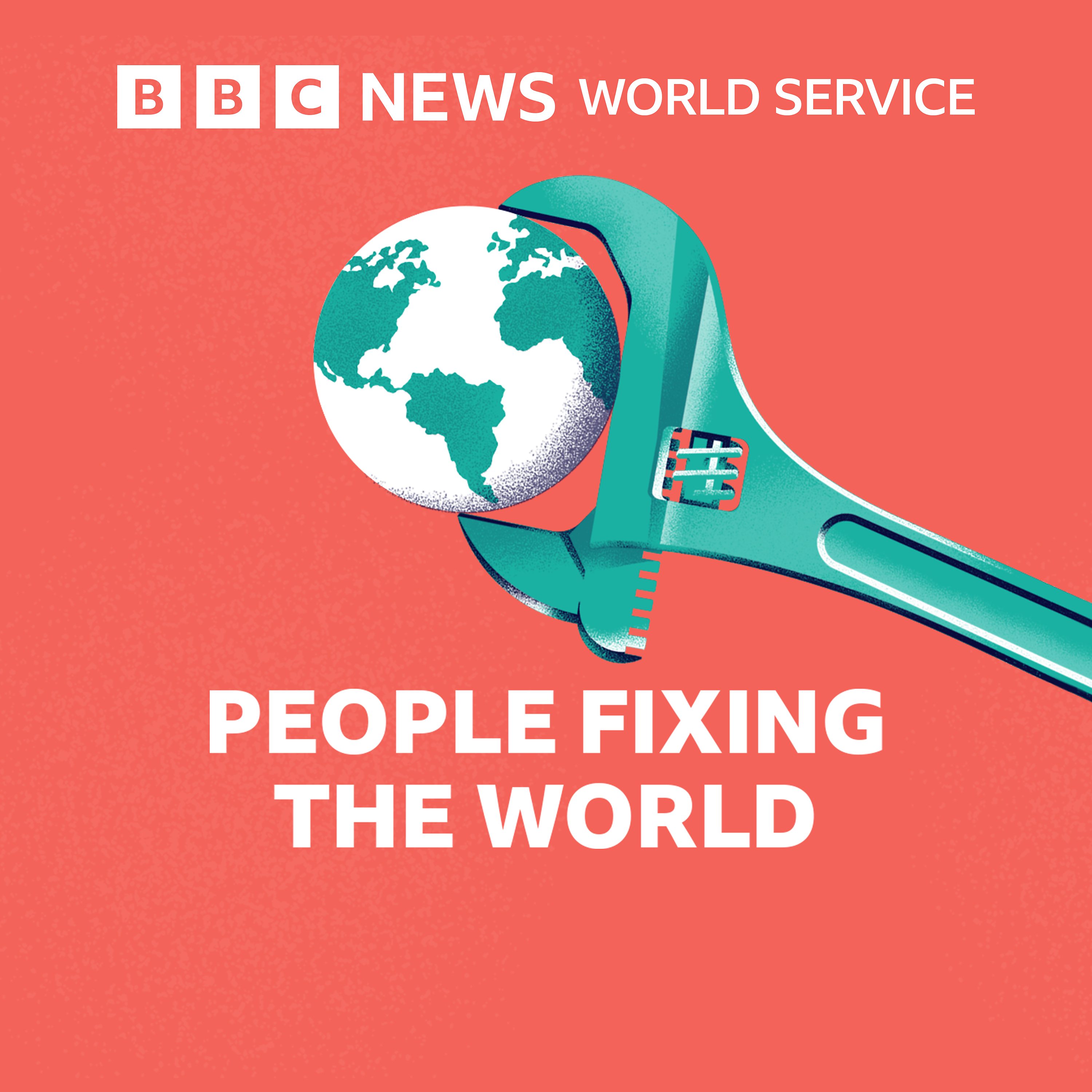

People Fixing the World
BBC World Service
Brilliant solutions to the world’s problems. We meet people with ideas to make the world a better place and investigate whether they work.
Episodes
Mentioned books

Sep 7, 2021 • 24min
The library where the books are people
At the human library you borrow a person you wouldn’t usually meet for a half-hour frank conversation. The volunteers have various book titles from polyamorous to former prisoner. The aim of these face-to-face chats is to break down our assumptions and prejudices. We explore whether simple discussions can make a difference.
Produced and presented by Claire Bates.
Picture: Ronni Abergel, Human Library

Aug 31, 2021 • 24min
Ways to save the planet: Fridge detectives
Two sources of greenhouse gas could be lurking in your kitchen: rice and fridges. We meet a biologist breeding climate-friendly rice, and a team of detectives whose job is to stop fearsomely potent fridge gases escaping into the atmosphere.
Produced and presented by Jo Mathys and Tom Heap.

Aug 24, 2021 • 24min
Ways to save the planet: Swap concrete for wood
Wood is strong enough to build skyscrapers, and bamboo - the fastest growing plant in the world - can also be used for building. Both suck up large amounts of greenhouse gas. We find out what would happen if we used these materials instead of concrete in construction.
Produced and presented by Jo Mathys and Tom Heap.
Picture: Moelven

Aug 17, 2021 • 24min
The seaweed farmers adapting to warming seas
Seaweed - we have been using it for centuries in food and toiletries. It can help to keep toothpaste and ice cream soft, as well as being a tasty snack. It is a billion-dollar industry. But in some parts of the world, supply of the crop has decreased dramatically due to climate change. Now people in Zanzibar are fighting back. They are learning new methods of farming seaweed in deeper, cooler waters. It is boosting the amount of seaweed they can grow and improving their livelihoods as a result.Produced and presented by Celestina Olulode. Additional production by Esther Namuhisa and Nicholaus Mtenga.

Aug 10, 2021 • 24min
Locust hunters
People in Kenya have been paid to catch swarms of locusts eating farmers’ crops. The insects are full of protein and the captured ones are ground up and put into animal feed. The BBC’s Nick Holland and Claire Bates find out what tricks these 'locust hunters' use to catch the critters and what difference the cull makes.
They also hear about a way of capturing tiny micro-plastic particles that come off car tyres and delve into a clever project feeding homeless people in Mumbai.
Written and produced by Nick Holland
Presented by Nick Holland and Claire BatesImage Credit: Getty Images

Aug 3, 2021 • 24min
Turning preachers into LGBT allies
The LGBT community in Mombasa, Kenya has suffered from violent mob attacks in recent years - often fuelled by influential preachers spreading messages of hate. But one group decided to tackle this in a remarkable way: they have directly engaged with faith leaders. In carefully controlled meetings the pastors and imams get to know LGBT people and have their misconceptions challenged. This has led to a big reduction in violence. Now many of those religious leaders use their influence to help the LGBT community fight discrimination wherever they find it.
Produced and presented by Richard Kenny
Picture: Getty Images

Jul 27, 2021 • 24min
The ATMs that dispense clean fuel
Sleek blue machines have been popping up in convenience stores across Nairobi over the past two years. These “Koko points” look like cash machines but instead of giving out money they dispense bioethanol, a fuel made from plants which can be used in cooking stoves.At the moment 80% of Kenyans use wood or charcoal as their main cooking fuel – but these materials have a devastating impact on the environment, and the smoke causes hundreds of deaths every week. Koko’s high-tech solution offers Kenyans a cleaner alternative, although it means a move away from some dearly-held customs.
Reporter: Mercy Juma
Producer: William Kremer

Jul 22, 2021 • 18min
Introducing: Season 2 of 30 Animals That Made Us Smarter
How animals make us smarter – we thought you might like to hear our brand new episode. It’s about a robotic arm inspired by an elephant’s trunk.For more, search for 30 Animals That Made Us Smarter wherever you get your podcasts.#30Animals

Jul 20, 2021 • 24min
Unsung victories in the fight against disease
Recent years have seen remarkable successes against some of the most unpleasant illnesses on the planet.
While much of the world’s focus has been on the fight against Covid-19, the battle against other diseases rages on.
From the battle against hepatitis C in Egypt, to the war against metre-long parasitic worms, to the near elimination of sleeping sickness in the Ivory Coast, we hear the good news that you might have missed.
Produced and presented by Tom Colls
Image: Treating sleeping sickness in the Ivory Coast (Credit: Vincent Jamouneau)

Jul 13, 2021 • 24min
How five friends can change a refugee’s life
Dutch friends Evelien and Roel are part of a group sharing their social networks and local knowledge with Laila, a Syrian refugee, and her family. They’re taking part in a pilot project in the Netherlands called Samen Hier, which matches locals and newcomers. The idea is to help people who live nearby get to know one another and encourage integration.
Produced and presented by Claire Bates
Picture: Getty Images


